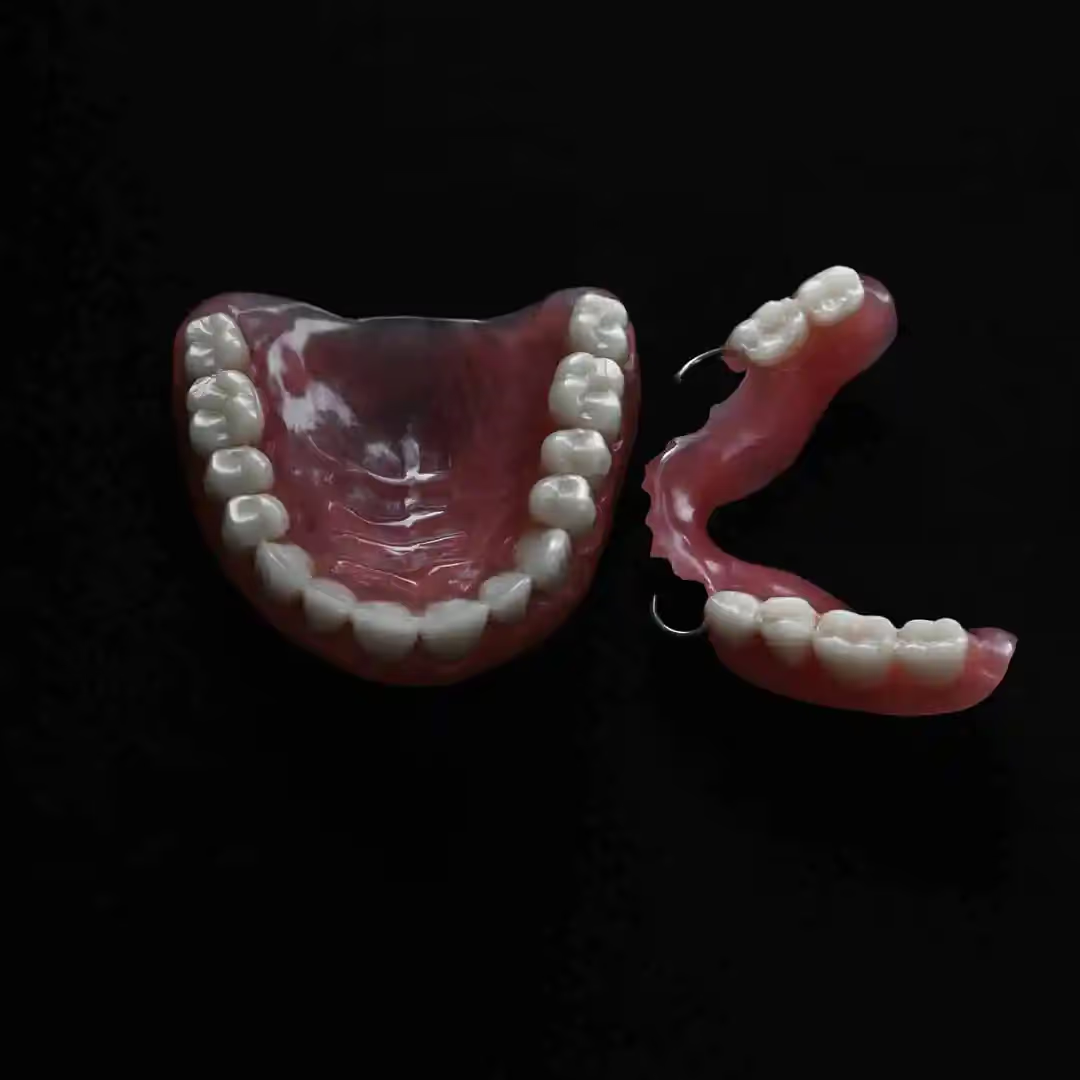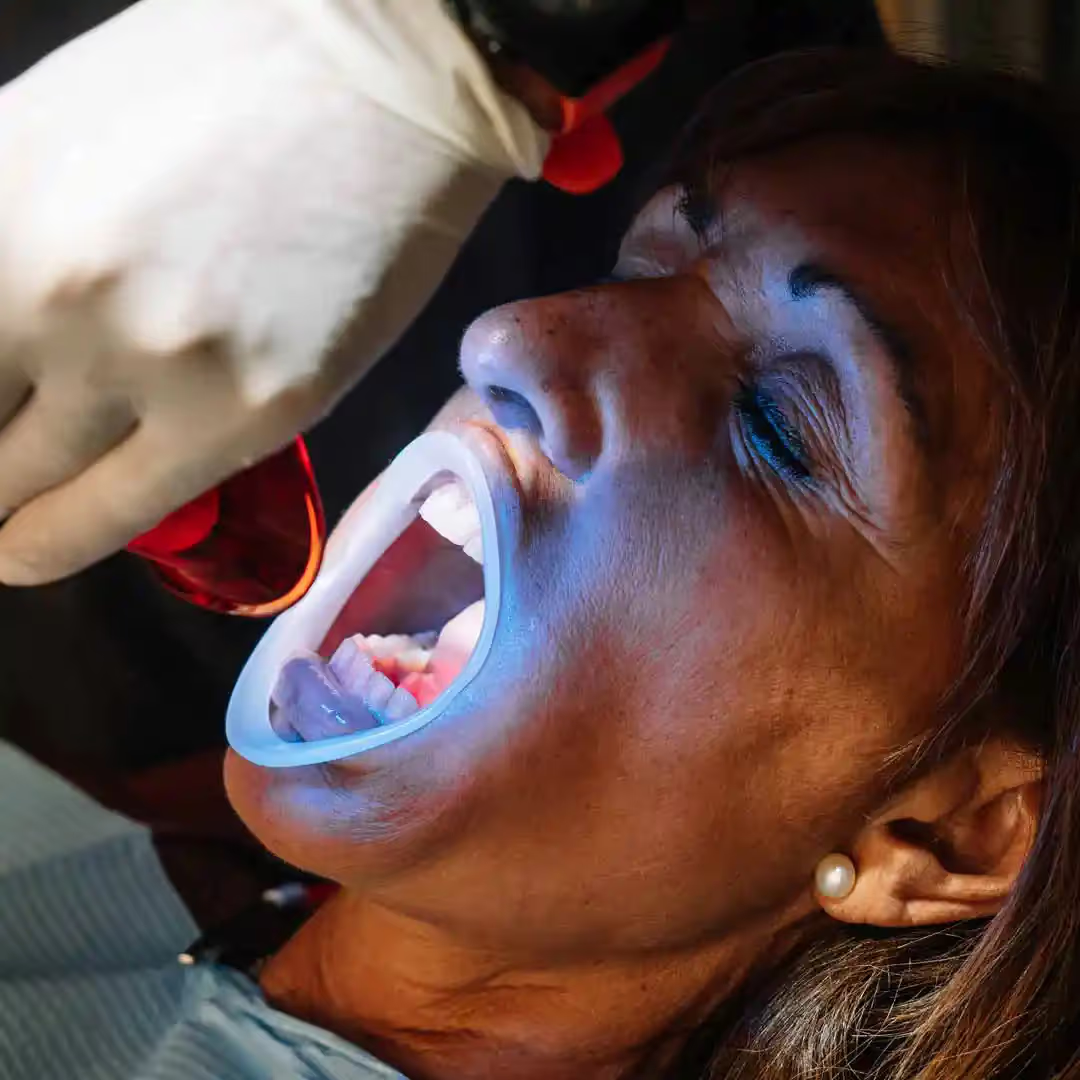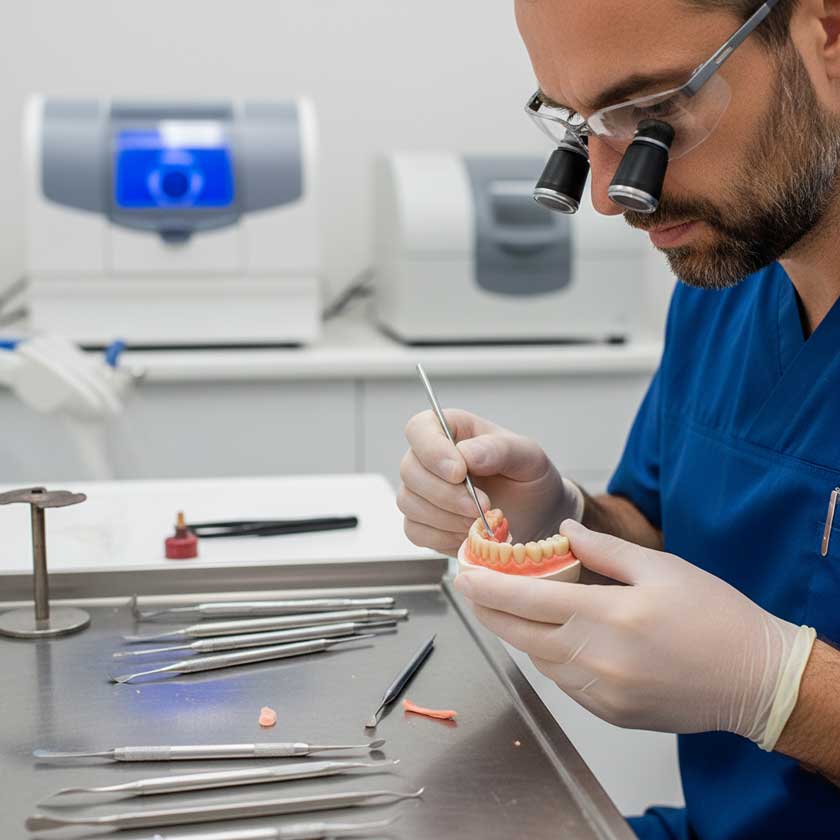Do gums heal faster with dentures out? Yes, generally, but this is based on individual circumstances. Understanding the healing process is crucial if you're considering immediate dentures or seeking the best way to heal your gums. This knowledge empowers you to make informed decisions about your dental health.
Gum healing usually takes 6-8 weeks, but bone healing can take months. Whether you wear dentures can affect how fast you heal and how comfortable you feel.
Immediate dentures can help you smile again right after your tooth is pulled. But do they help your gums heal? Let's look at the good and bad of wearing dentures while your gums heal. We'll also talk about other options, such as temporary bridges or leaving the extraction site open, that might make your recovery faster.
Key takeaways
- Gum healing typically takes 6-8 weeks after tooth extraction
- Immediate dentures can be placed right after extraction
- Gums generally heal faster without dentures due to reduced pressure
- Factors like fit, comfort, and protection influence healing with dentures in
- The choice between dentures in or out depends on personal priorities and lifestyle

Understanding immediate dentures and gum healing.
Immediate dentures play a significant role in your oral health journey. They are placed right after the tooth is extracted, providing immediate relief and support. These dentures not only help you maintain your appearance but also ensure your mouth functions as normally as possible, boosting your confidence during the healing process.
What are immediate dentures?
Immediate dentures are temporary teeth put in right after a tooth is pulled. They keep your mouth looking good and working a little bit. They usually last 6 to 8 months before you get permanent ones.
The stages of gum healing after tooth extraction
Gum healing goes through different stages with immediate dentures:
- Initial healing (0-1 week): Blood clot forms, protecting the area.
- Early tissue repair (1-3 weeks): New tissue starts to grow, making gums less sore.
- Maturation of tissue (3-6 weeks): Gum tissue strengthens and changes shape.
- Complete healing (6-8 weeks and beyond): Gums fully adjust to the denture.
Factors affecting gum healing with dentures
Many things can affect gum healing with immediate dentures:
Good care and dentist visits are crucial for gum healing with immediate dentures. Healing times vary for everyone. So, be patient and careful for the best results.

Do gums heal faster with dentures in or out?
Gum healing after tooth extraction is key for denture fit and oral health. Wearing dentures during healing can change recovery time and comfort.
Pros and cons of wearing dentures during healing.
Wearing dentures while gums heal has benefits and disadvantages. It keeps your mouth looking and working properly, but it might be uncomfortable if they don't fit well.
Dentures can slow down healing and raise infection risk if not cleaned right.
Benefits of allowing gums to heal without dentures.
Letting gums heal without dentures can speed up recovery. It lessens pressure on healing sites, improving blood flow. This reduces gum shrinkage and bone loss.
It also helps soft tissue heal faster. Without dentures, patients might see full gum recovery in 14 to 30 days.
Balancing aesthetics and healing.
Deciding whether to wear dentures depends on what you value most. Some want to look natural, and others want to heal faster. A good middle ground is wearing dentures for short periods and taking them out at night.
This keeps your mouth looking good while still letting gums heal.
Regardless of your choice, maintaining good oral hygiene is crucial. Regular cleaning and dentist visits are essential to ensure proper healing and a good denture fit. Remember, healing times vary, so it's important to stay proactive and consult your dentist for personalized advice.
Choosing the right approach for your gum healing.
Deciding whether to wear dentures during gum healing is a personal choice. It affects gum inflammation, healing time, and oral discomfort. When deciding, consider your lifestyle, work, and social life.
Immediate dentures offer quick aesthetic benefits but may need frequent adjustments. The closure of extraction sites takes 6 to 8 weeks, but complete bone healing can take 6 to 8 months.
If you choose immediate dentures, be ready for discomfort and possible denture relining. Regular dentist visits are key to tracking healing and making needed adjustments.
Consider not wearing dentures for better gum tissue protection and faster healing. This can lower the risk of bacterial growth and complications.
"Dentures should not cause pain or bleeding. If these symptoms occur, adjustments may be needed for proper comfort and functionality."
Smoking slows down healing. If you smoke, quitting or reducing use can help gum healing.
Consult your dentist to find the best approach for you. Consider your health, lifestyle, and oral health goals.
Conclusion
Wound healing after oral surgery is complex, especially with dentures. Immediate dentures offer quick relief and support. They help maintain function and look good while healing.
They act as a barrier, protecting gum tissue from infection. This promotes better healing.
Gums might heal faster without dentures, but wearing them has big benefits. They help with speech, chewing, and emotional well-being.
They also control bleeding and swelling. However, because of changes in the mouth and gums, they might need many adjustments.
The choice between denture-free healing and immediate dentures depends on your needs. How long it takes to recover, comfort with dentures, and personal preferences matter. Whether you choose immediate or traditional dentures, regular dental visits are important. They help ensure a good fit and promote gum health.
FAQ
What are immediate dentures?
Immediate dentures are placed right after tooth extraction. They help you avoid being seen without teeth, make the transition smooth, and improve how you look and function.
What are the stages of gum healing after tooth extraction?
Gum healing has several stages. First, there's initial healing (0-1 week). Then, early tissue repair happens (1-3 weeks). Next, the tissue matures (3-6 weeks). Finally, complete healing takes place (6-8 weeks and beyond).
What factors affect gum healing with dentures?
Several factors impact gum healing with dentures. These include how well the denture fits and feels. Protection from debris and bacteria is also key. Functionality is important, too. Complications can arise from denture pressure, blood clot dislodgement, and gum irritation.
Do gums heal faster with dentures in or out?
Gums heal faster without dentures because there's less pressure and friction. Blood circulation improves, and complications are less likely. But wearing dentures keeps your appearance and function intact, even if they're uncomfortable if not fitted right.
What are the benefits of allowing gums to heal without dentures?
Healing without dentures lets your gums recover better. But it might affect how you look and function.
How do you balance aesthetics and healing when deciding to wear dentures or not?
Deciding to wear dentures or not depends on what's more important to you. Do you value looking professional or feeling comfortable?
Are immediate dentures a permanent solution?
Immediate dentures are temporary. You might need new dentures within a year because your mouth changes significantly.
What is important for successful healing and long-term denture use?
Proper care and maintenance of immediate dentures are key to successful healing and long-term use. Regular adjustments and dentist visits are also crucial for oral health.








